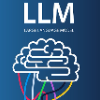This paper explores the pressing issue of risk assessment in Large Language Models (LLMs) as they become increasingly prevalent in various applications. Focusing on how reward models, which are designed to fine-tune pretrained LLMs to align with human values, perceive and categorize different types of risks, we delve into the challenges posed by the subjective nature of preference-based training data. By utilizing the Anthropic Red-team dataset, we analyze major risk categories, including Information Hazards, Malicious Uses, and Discrimination/Hateful content. Our findings indicate that LLMs tend to consider Information Hazards less harmful, a finding confirmed by a specially developed regression model. Additionally, our analysis shows that LLMs respond less stringently to Information Hazards compared to other risks. The study further reveals a significant vulnerability of LLMs to jailbreaking attacks in Information Hazard scenarios, highlighting a critical security concern in LLM risk assessment and emphasizing the need for improved AI safety measures.
翻译:暂无翻译




